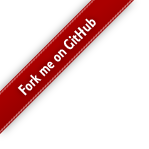Simulating energy materials with ESPResSo and waLBerla
Date:
October 9, 2023 – October 13, 2023
Location:
hybrid format: onsite course at the ICP, University of Stuttgart (Germany) with live streaming on Zoom for online participants
Register:
https://www.cecam.org/workshop-detail/1229
Course description
Scientific content
This school will teach the physics and simulation methods used to study energy materials. We will explore topics such as electrostatics in confinement, chemical reactions and catalysis, electrophoretic mobility, diffusion, and electrokinetics.
We will first introduce particle-based approaches and Monte Carlo schemes to model reactions in chemical systems. Then, we will cover the lattice-Boltzmann method for hydrodynamic interactions and a diffusion-advection-reaction solver for modelling electrokinetics and catalysis.
Lectures will provide an introduction to the physics and model building of these systems as well as an overview of the necessary simulation algorithms. During the afternoon, students will practice running their own simulations in hands-on sessions.
Many of the lectures and hands-on sessions will be taught by developers of the software. Hence, the school will also provide a platform for discussion between developers and users about the future of the software. Moreover, users can get advice on their specific simulation projects. Time will also be dedicated to research talks, which illustrate how the simulation software is applied, and which provide further background in the physics of energy materials.
Poster session
As an on-site participant, you have the opportunity to bring a poster to introduce your work to your peers. We welcome submissions on both planned and ongoing research projects, done with or without ESPResSo, as long as they fit to the general themes of energy materials, fluid dynamics or soft matter physics.
Everyone bringing a poster is invited to present it in a 1 minute lightning talk during the poster session. The poster boards will remain up for the entire duration of the school.
Invited speakers
- Stephan Gekle (Universität Bayreuth, Germany)
- Timo Jacob (Ulm University, Germany)
- Laura Scalfi (Freie Universität Berlin, Germany)
- Peter Košovan (Charles University, Prague, Czech Republic)
- Céline Merlet (Toulouse III – Paul Sabatier University, France)
- Mathieu Salanne (Sorbonne University, Paris, France)
- Svyatoslav Kondrat (Institute of Physical Chemistry, Warsaw, Poland)
Teaching material
Hands-on sessions
We use interactive Jupyter notebooks to teach concrete applications of the simulation methods introduced in the lectures. These notebooks outline physical systems relevant to soft matter physics and sketch simulation scripts written for the ESPResSo package using the Python language. A few parts of these scripts are hidden and need to be completed by participants, with the help of the ESPResSo user guide and tutors.
We offer tutoring to all on-site participants and to a small number of online participants via Zoom. These exercises can also be carried out in self-study using the web browser via Binder or Gitpod, and all exercises have hidden solutions that can be revealed at any time.
Software
In this school, students learn to conduct coarse-grained and lattice-based simulations suitable for modeling energy materials, but which can easily be transferred to other fields of statistical physics and soft matter physics, using the software ESPResSo (espressomd.org) and waLBerla (walberla.net). ESPResSo is an open-source particle-based simulation package with a focus on coarse-grained molecular dynamics models. In addition, it offers a wide range of schemes for solving electrostatics, magnetostatics, hydrodynamics and electrokinetics, as well as algorithms for active matter and chemical reactions[1].
ESPResSo consists of an MPI-parallelized simulation core written in C++ and a scripting interface in Python which integrates well with science and visualization Python packages, such as numpy and PyOpenGL. ESPResSo relies on waLBerla, a high performance lattice-Boltzmann library, for hydrodynamics and other lattice-based schemes for electrokinetics and related fields[2].
Event organization
This school is primarily planned as an on-site event. Lectures and talks will be streamed live on Zoom for online participants. Hands-on sessions will be tutored by experienced ESPResSo users and developers. There will be additional opportunities for scientific exchange during the user & developer meeting, poster session, Q&A sessions and social events (scientific speed dating, BBQ, city tour, speakers’ dinner).
Attendance to the summer school is free.
References
[1] F. Weik, R. Weeber, K. Szuttor, K. Breitsprecher, J. de Graaf, M. Kuron, J. Landsgesell, H. Menke, D. Sean, C. Holm, Eur. Phys. J. Spec. Top., 227, 1789-1816 (2019) DOI:10.1140/epjst/e2019-800186-9
[2] M. Bauer, S. Eibl, C. Godenschwager, N. Kohl, M. Kuron, C. Rettinger, F. Schornbaum, C. Schwarzmeier, D. Thönnes, H. Köstler, U. Rüde, Computers & Mathematics with Applications, 81, 478-501 (2021) DOI:10.1016/j.camwa.2020.01.007
[3] M. Bauer, J. Hötzer, D. Ernst, J. Hammer, M. Seiz, H. Hierl, J. Hönig, H. Köstler, G. Wellein, B. Nestler, U. Rüde, Code generation for massively parallel phase-field simulations. Published in: Proceedings of the International Conference for High Performance Computing, Networking, Storage and Analysis (2019) DOI:10.1145/3295500.3356186


